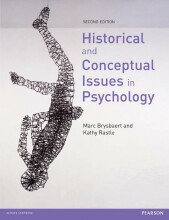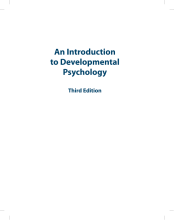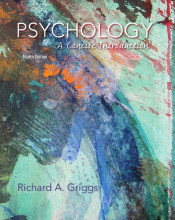Eighteenth- and nineteenth-century precursors to a scientific psychology
29 important questions on Eighteenth- and nineteenth-century precursors to a scientific psychology
Describe cartesian doubt or descartes method of doubt.
- He didn't like to adapt knowledge from authorities.
- he didn't agree with the foundations on which we gain knowledge
- he started to wonder what would be absolutely certain if we doubted everything.
- the only thing that he couldn't doubt was that there was an i that was thinking. I think therefor i am.
How did descartes reason himself into dualism?
- I doubt
- So there is something that is doubting
- I call that something “the mind”
- I cannot doubt the existence of this mind
- The mind is not material. After all,
- you can doubt anything that is material
- The mind thus must exist separately from the body: Dualism
What was the reasoning descartes used to prove god is real?
- I doubt
- thus, I am not perfect since perfection would be certain.
- So where do I get the idea of perfection
- I could have made up less perfect things, but not more perfect things
- That idea of perfection must have been placed in me by something more perfect than me
- Whoever placed that idea of perfection in me must have in him- /herself all of the perfection that I have ideas of
- “that is to say, in a single word, which was God”
- Higher grades + faster learning
- Never study anything twice
- 100% sure, 100% understanding
How did descartes reason to nativism and towards the world being real?
- Since god is not perceived, the idea of god must be innate
- With this Descartes follows Plato and opposes Aristotle
- Because God is perfect, God will not fool us: the world we perceive outside of us, exists!
From the mind body problem descartes creates the problem of interaction, what is this?
How is descartes dualism rejected?
- A mind that controls the brain must set something in motion
- to set something in motion one needs energy.
- this would mean that the (Cartesian) mind adds energy out of nothing: This violates the Law of Conservation of Energy
- a body moving can only be explained by other physical causes.
How do we call the view that theories of mental properties can be reduced to neuroscientific theories
How do we call the view about the relationship between
the mind and brain that considers the mind as the brain in operation?
Who were the three biggest british empiricists?
- Locke, english
- Berkeley, irish
- Hume, scottish
How did locke refute rationalism but mostly nativism?
- Rationalist say that one of the innate knowledge we have is universal moral principles
- Locke observed children and different cultures
- he found that;
- We don't find these "universal" principles in children and fools
- In different cultures you see different moral principles
After refuting nativism, what did john locke propose what the human mind is like?
it is written by experience.
How was locke's tabula rasa a political idea?
- If all people start out as tabula rasa, they're essentially the same
- This gives rise to Locke’s idea of "natural rights": what we now call human rights
How are locke's ideas still relevant today?
- The tabula rasa theory was very influential until well into the 20th century: everything (e.g., depression, autism) is nurture
- Only at the end of the 20th century there was a turning point, partly due to genetics: all kinds of psychological properties were found to be influenced by genes
How did berkeley's ideas correspond to the ideas of locke and descartes?
- Berkeley takes Locke's idea very seriously, Assumes that all knowledge enters through the senses.
- Concludes that if that is so, we can only be certain of our perceptions, not of a material external world. (sounds like cartesian doubt) Also writes in reasoning just like descartes
- he said that if we see a table and feel a table the only thing we sure of is that we perceive the table, not that it is actually there.
- But then what is it that causes our perception of this external world?
How does berkeley contribute to the problem of interaction?
- Perceptions are immaterial.
- if the object that is perceived is in fact material, how does this cause an immaterial perception?
- he therefor rejects the idea that there is a material external world.
How did berkeley reason god into this whole thing?
- Perceptions can't be caused by a material world for they are immaterial
- so it might be possible that perceptions themselves cause ideas or perceptions, this can't also be true since perceptions aren't active agents in creating ideas.
- maybe it is possible that the mind itself creates perceptions like an illusion, this can't be the case since we cannot choose what to perceive.
- therefor It must be some other spirit, whose will we experience!
- which is god.
How does god let us perceive according to berkeley?
– There is no material substance
– There are only spirits/minds that perceive
– The most superior spirit is God
– The objects that are perceived are not material; they are ideas
– These ideas are caused by God
How do we call the view within philosophy that human knowledge is a construction of the mind and does not necessarily correspond to an outside world; the truth of knowledge depends on the coherence with the rest of the knowledge in the social group?
How was berkeley an idealist?
- He stated that all properties of reality depended on the mind,
- to be is to be perceived
- which makes outside reality real, since it is perceived, but it doesn't make it material, it is a construction of the mind
- The part of the world that we experience as “objective” is a projection of God’s mind, thats why the sun is still there when we close our eyes.
How is berkeley still an empiricist?
- for Berkeley, all knowledge enters us through perception
- The ideas of God are incomprehensible so we cannot deduce them through reasoning; we only have perception to fall back on
What are the commonalities and differences between descartes and berkeley?
- both reason about the foundation of knowledge
- Both formulate a proof of God Descartes concludes that there is a physical external world; Berkeley that God causes the ideas directly within us
- Descartes’ reasoning results in dualism, Berkeley’s in idealism
- Descartes concludes that reason must be the source of knowledge, Berkeley that perception is the source
- Both have become side-paths in philosophy
Describe Hume's view on how we gain knowledge.
- Empirical knowledge is generated through the ‘copy principle’
- Experiences result in impressions in the mind (similar to a stamp ring that leaves a print in wax)
- When two states of affairs (scenes) occur repeatedly together, their impressions in the mind will be associated
- such an association can be seen as a correlation, and correlation is the highest thing we can observe
- only through reasoning we can imply causation
What were the conditions for causality Hume proposed?
- Proximity of cause and effect
- the billiard player hits the white ball and right after that (near in time) the white ball hits the black ball (near in space) which then disappears into the pocket
- Cause precedes effect
- Necessary connection between cause and effect
- when the billiard player hits the white ball, the black ball always (necessarily) moves
What does hume conclude from the problem of induction?
- Hume, just like Locke and Berkeley, beliefs that all knowledge comes from experience
- Causal relations, according to his own criterion, cannot come from experience alone
- And so Hume concludes that causal relations should not play a role in our description of empirical reality
What was hume's influence on science?
- Hume's induction problem is a threat for all kinds of knowledge After all, almost all science and philosophy is based on generalization
- Laws are nothing more than habits in which we came to see necessity
- If general laws and causal relationships cannot be proven, then nothing is certain anymore
- so methodology today is an answer to hume's problem by never assuming actual causality but giving a probability
How does Kant respond to Hume?
- He is impressed by hume's work but doesn't want his problem of induction but doesn't want it to reject newton's work.
- so Kant agrees with Hume that necessity cannot come from experience.
- But there are examples of necessary and universal knowledge: e.g. math!, he asks where this knowledge should come from.
How do we call the trend in a society towards looser social relations and a greater focus by individuals on themselves than on the groups they belong to?
Since the end of the Middle Ages there has been increasing individualisation in society, what are factors hypothesized to play a role in this development?
- Increased complexity of society
- Increased control by the state
- Individuality promoted by Christianity
- The increased availability of mirrors, books and letters
How do we call the view within philosophy that human knowledge tries to reveal real properties of the outside world; the truth of knowledge is determined by the correspondence of the knowledge with the real world?
The question on the page originate from the summary of the following study material:
- A unique study and practice tool
- Never study anything twice again
- Get the grades you hope for
- 100% sure, 100% understanding
































